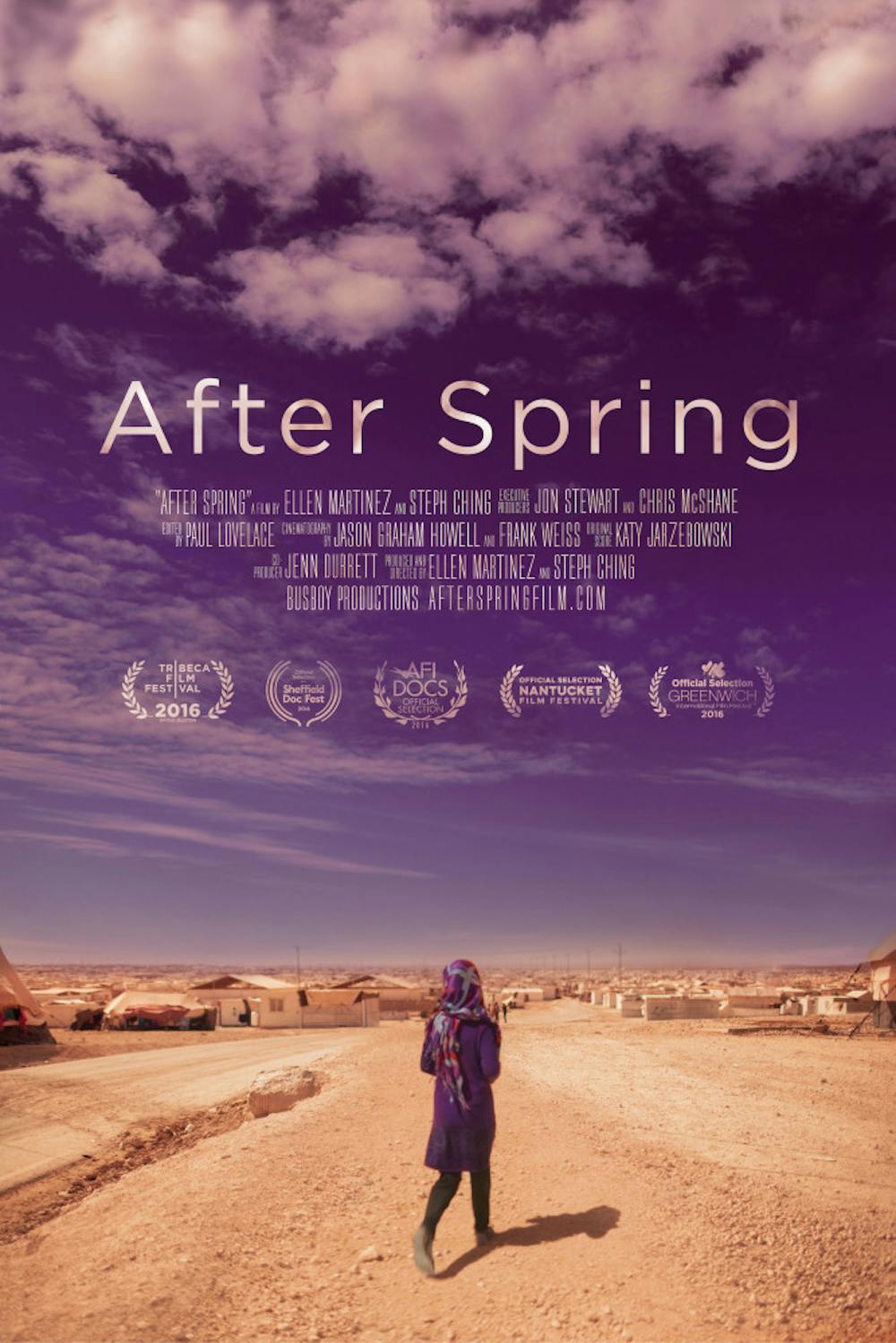“After Spring,” a documentary directed and produced by Ellen Martinez and Steph Ching and executive produced by Chris McShane and comedian-turned-filmmaker Jon Stewart, was screened Monday by the Ivy Film Festival and React to Film, an organization that works in partnership with the IFF to provide socially conscious films.
The film attempts to portray the lives of Syrians living inside Zaatari, a labyrinthine mass of tents in Jordan that has grown to house over 100,000 refugees. The paths that these Syrians have taken to get there are painful and often miraculous, and many have lived within the confines of the chain link perimeter fence since 2012. In fact, Zaatari is the fourth largest in Jordan.
Through the camera lens, viewers see an endless variety of occupations that refugees have established for themselves since the camp was first settled. There are restaurants, wedding suppliers and pet shops. But even in their tents, refugees can occasionally hear the harsh sounds of the Syrian conflict traveling over the desert border.
The film’s creators chose to follow solely two refugee families, along with a handful of camp officials and volunteers. There is an enormous sense of restlessness that touches each of the men, women and children in the film. We are told one young child, born and raised in the camp, believes that the distant explosions are fireworks and wants to go see them. Someone selling caged birds claims that a bird “gives you a feeling of being alive.” According to one man interviewed in the film, 90 percent of the camp’s young men are unemployed. Though the settlement was intended to be temporary, life in Zaatari becomes more and more permanent as the Syrian conflict rages with no end in sight.
After the screening, a discussion took place featuring Carl Saab, associate professor of neuroscience and neurosurgery, Lisa DiCarlo, professor of sociology, and Rep. Aaron Regunberg ’12, D-Providence, as the three panelists.
Saab, who was born and raised in Lebanon, has conducted research on the stress and the neurodevelopment of children in several refugee camps, including Zaatari. Saab said that it was “hard to imagine” that those “spewing hatred and bigotry” against refugees would not be affected by watching the documentary.
DiCarlo said it was important to “pull the curtain back and show the depth of the suffering,” adding that the film encouraged audiences to “think about what it really takes to run a camp like that.”
Regunberg, meanwhile, said the film was “very effective,” adding that he hoped it would encourage more compassion in Rhode Island and increase citizens’ willingness to shelter refugees. “Even the ambitious numbers we’re talking about are a drop in the bucket,” he said.
As for the film’s shortcomings, Saab said he wanted students to ask why the camp was fenced in, a topic that was left unaddressed by the film. Saab also indicated that there was a broader context to the refugee crisis. “We all have to remember that this war’s fate is being decided by Mr. Kerry and Mr. Lavrov,” he said, referring to the fraught negotiations between Secretary of State John Kerry and the Foreign Minister of Russia Sergey Lavrov.
Elizabeth Lippman ’17 and Paige Parsons ’18, outreach coordinators for the IFF, described the film as relevant and “very timely.”
“There’s a lot of academic energy at Brown to study and understand the conflict but, at large, it can seem like a very distant issue,” said Parsons. “There’s a lot of energy behind (the film), so we’re excited that it can be part of our own campus dialogue about this issue,” she added.





